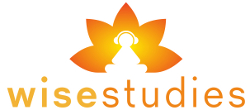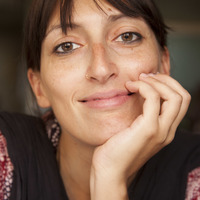 In this episode I speak with Daniela Bevilacqua. We cover hindu asceticism, its history, its aims, its culture. We discuss how contemporary ascetics are interacting with a rapidly changing and modernising India.
In this episode I speak with Daniela Bevilacqua. We cover hindu asceticism, its history, its aims, its culture. We discuss how contemporary ascetics are interacting with a rapidly changing and modernising India.
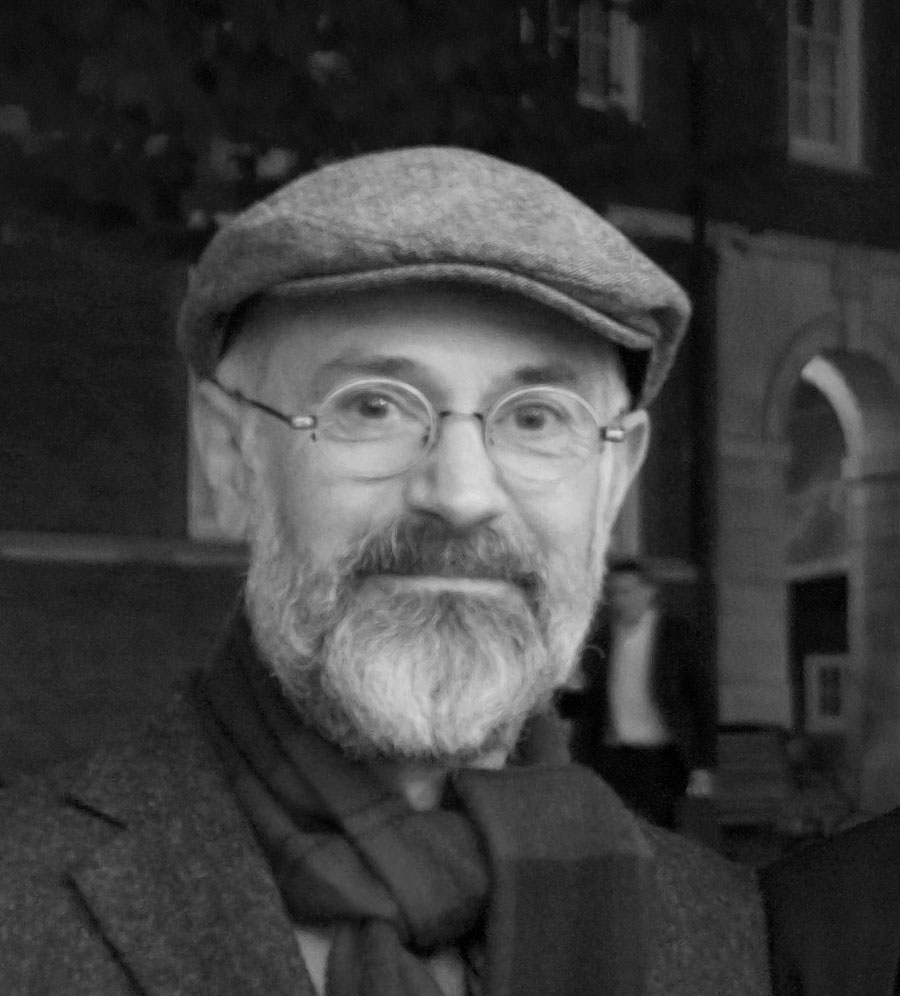 In this episode I speak with John Danvers about his 55+ years of Zen teaching and practice. We discuss the history of Zen, awakening experiences, the art of sitting and more.
In this episode I speak with John Danvers about his 55+ years of Zen teaching and practice. We discuss the history of Zen, awakening experiences, the art of sitting and more.
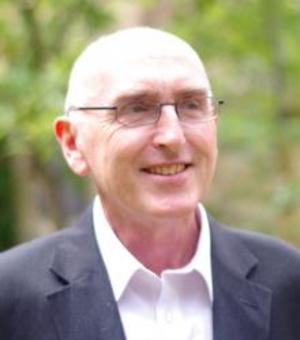 In this episode I am speaking with Gavin Flood. Gavin is a Professor of Hindu Studies and Comparative Religion in the Theology and Religion Faculty and academic director of the Oxford Centre for Hindu Studies. Gavin read Religious Studies and Social Anthropology at Lancaster University and taught at the universities of Wales (Lampeter) and Stirling before coming to Oxford. He was elected to membership of the British Academy in 2014. His research interests are in medieval Hindu texts (especially from the traditions of Shiva), comparative religion, and phenomenology. Two recent books are The Importance of Religion: Meaning and Action in Our Strange World (Oxford: Blackwell, 2013) and The Truth Within: A History of Inwardness in Christianity, Hinduism and Buddhism (Oxford University Press, 2014) which are the starting point for our conversation.
In this episode I am speaking with Gavin Flood. Gavin is a Professor of Hindu Studies and Comparative Religion in the Theology and Religion Faculty and academic director of the Oxford Centre for Hindu Studies. Gavin read Religious Studies and Social Anthropology at Lancaster University and taught at the universities of Wales (Lampeter) and Stirling before coming to Oxford. He was elected to membership of the British Academy in 2014. His research interests are in medieval Hindu texts (especially from the traditions of Shiva), comparative religion, and phenomenology. Two recent books are The Importance of Religion: Meaning and Action in Our Strange World (Oxford: Blackwell, 2013) and The Truth Within: A History of Inwardness in Christianity, Hinduism and Buddhism (Oxford University Press, 2014) which are the starting point for our conversation.
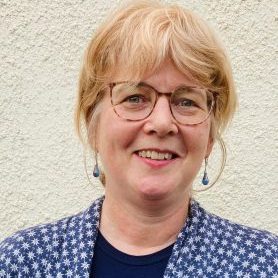 In this episode I am speaking with Ann Conway-Jones about some of the developments in early christianity. What was the transition like between jews and gentiles who went from identifying with the customs and traditions of the time to becoming followers of Christ? What defined early christian contemplative practice? Ann teaches biblical studies, early Jewish–Christian relations, and the development of mystical theology for The Queen’s Foundation; Woodbrooke Quaker Studies Centre; Birmingham Church of England diocese; and Oxford University Department of Continuing Studies. For six years she taught biblical Hebrew in the Department of Theology and Religion.
In this episode I am speaking with Ann Conway-Jones about some of the developments in early christianity. What was the transition like between jews and gentiles who went from identifying with the customs and traditions of the time to becoming followers of Christ? What defined early christian contemplative practice? Ann teaches biblical studies, early Jewish–Christian relations, and the development of mystical theology for The Queen’s Foundation; Woodbrooke Quaker Studies Centre; Birmingham Church of England diocese; and Oxford University Department of Continuing Studies. For six years she taught biblical Hebrew in the Department of Theology and Religion.
You can hear here course Moses, Mount Sinai and Early Christian Mystics at wisestudies.com
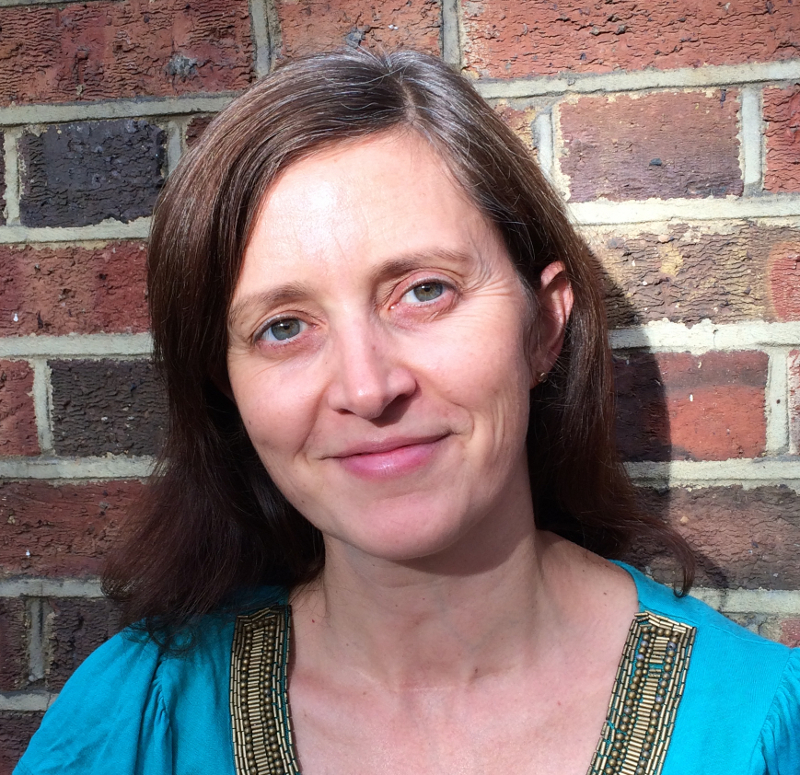 In this episode I am speaking with Dr. Karen O’Brien-Kop. Karen is Lecturer in Asian Religions and Ethics at the University of Roehampton. She was formerly Senior Teaching Fellow in the Department of Religions and Philosophies at SOAS University of London. Her doctoral research at SOAS was on the intertextuality of Pātañjala yoga and Buddhist yoga in the classical era. She was a co-founder of the Sanskrit Reading Room and is a committee member of the SOAS Centre of Yoga Studies.
In this episode I am speaking with Dr. Karen O’Brien-Kop. Karen is Lecturer in Asian Religions and Ethics at the University of Roehampton. She was formerly Senior Teaching Fellow in the Department of Religions and Philosophies at SOAS University of London. Her doctoral research at SOAS was on the intertextuality of Pātañjala yoga and Buddhist yoga in the classical era. She was a co-founder of the Sanskrit Reading Room and is a committee member of the SOAS Centre of Yoga Studies.
You can hear Karen’s excellent 4 hour audio course The Philosophy of the Yoga Sutra at wisestudies.com
In this conversation we discuss the relationship between Yoga and Buddhism.
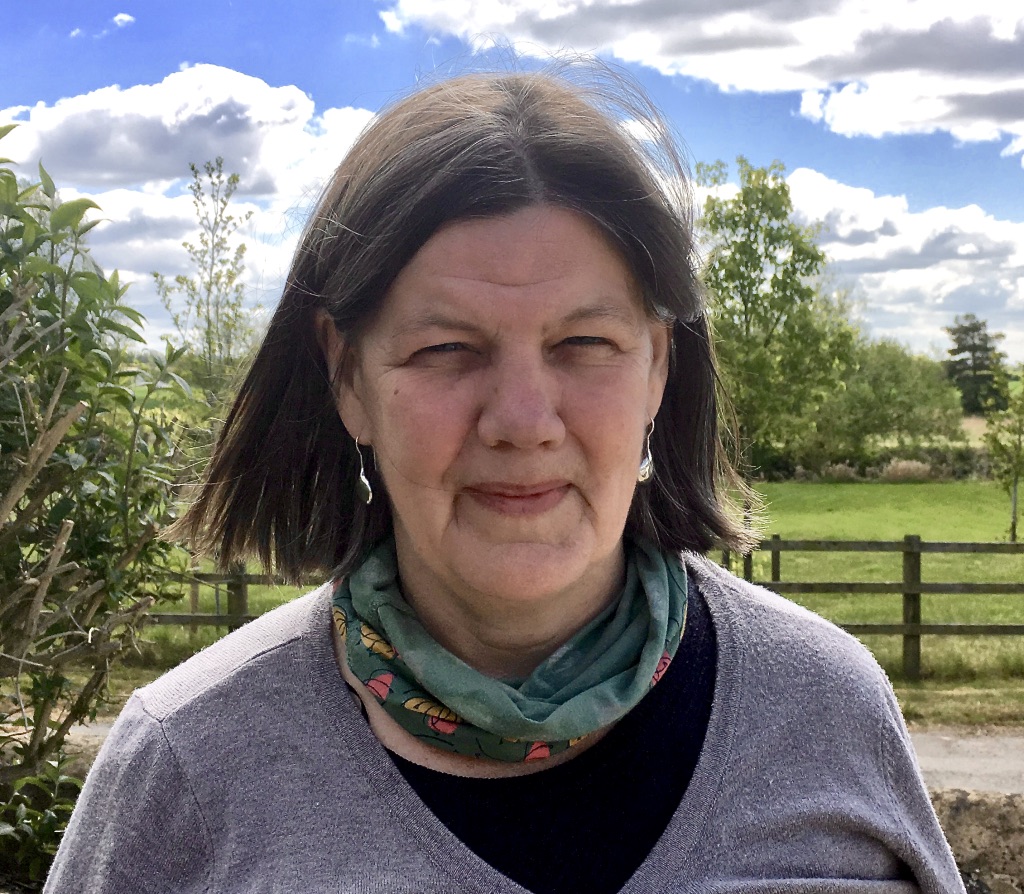 In this episode I speak with Sarah Shaw. Sarah received her PhD in English from Manchester University. After studying Pali and Sanskrit at Oxford, she began teaching and writing on Buddhist subjects. She has written several books on meditation theory and practice, and Jātaka literature. She is the author of several books including Introduction to Buddhist Meditation, The Jātakas: Birth Stories of the Bodhisatta and her most recent book, The Spirit of Buddhist Meditation. She is a member of the Faculty of Oriental Studies, University of Oxford, and Wolfson College. She is a fellow of the Oxford Centre for Buddhist Studies. You can hear her 2 most recent audio courses. The Early Teachings of the Buddha and Lives of the Buddha at wisestudies.com
In this episode I speak with Sarah Shaw. Sarah received her PhD in English from Manchester University. After studying Pali and Sanskrit at Oxford, she began teaching and writing on Buddhist subjects. She has written several books on meditation theory and practice, and Jātaka literature. She is the author of several books including Introduction to Buddhist Meditation, The Jātakas: Birth Stories of the Bodhisatta and her most recent book, The Spirit of Buddhist Meditation. She is a member of the Faculty of Oriental Studies, University of Oxford, and Wolfson College. She is a fellow of the Oxford Centre for Buddhist Studies. You can hear her 2 most recent audio courses. The Early Teachings of the Buddha and Lives of the Buddha at wisestudies.com
In this discussion Sarah gives us an introduction to the Pali Canon, the collection of teachings of the Buddha.
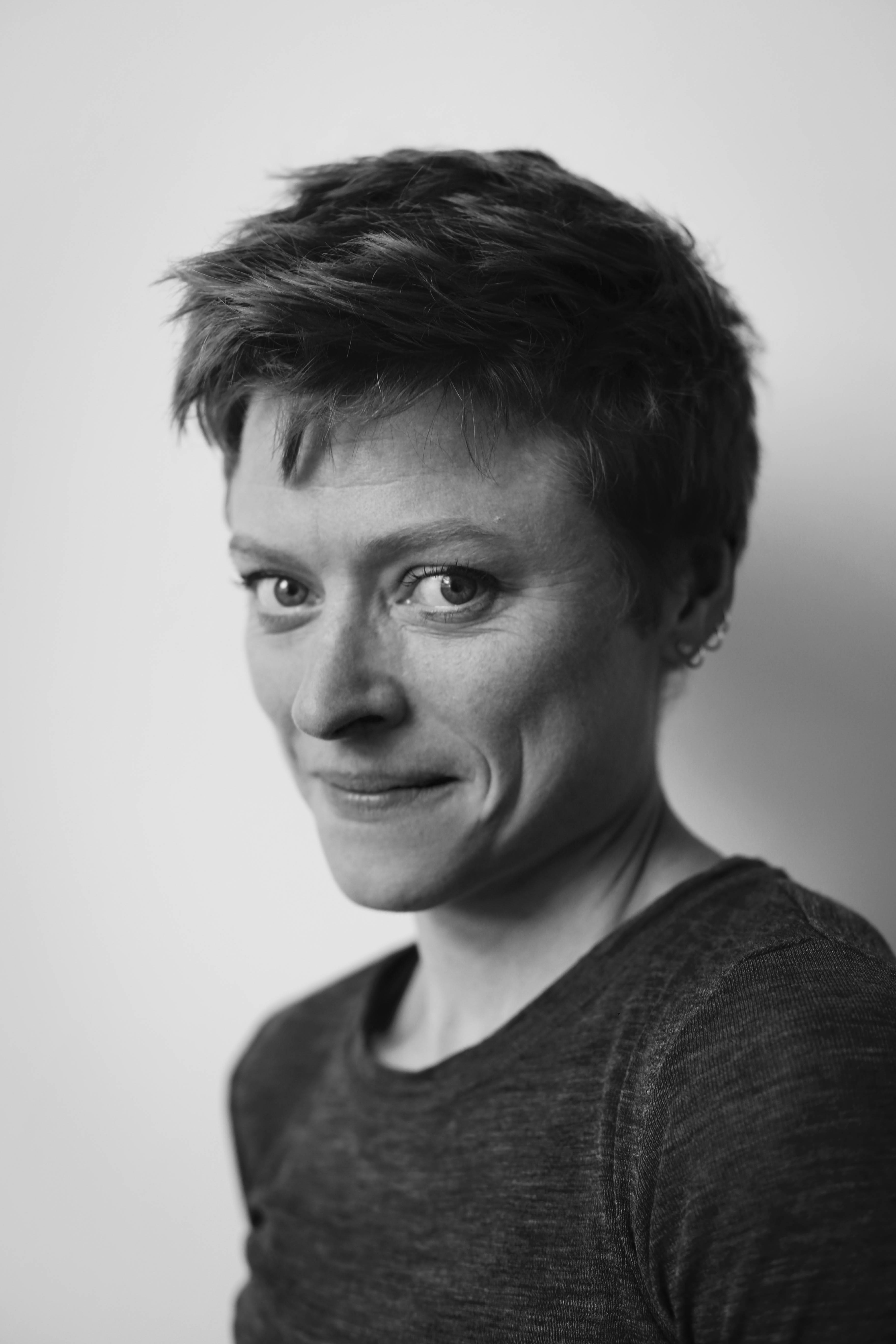 In this episode I am speaking with Ruth Westoby. Ruth is a doctoral researcher in yoga and an Ashtanga practitioner. As well as offering workshops and lectures at studios and conferences, Ruth teaches on some of the principal Yoga teacher training programmes in the UK and beyond. Ruth received an MA in Indian Religions from SOAS in 2010.
In this episode I am speaking with Ruth Westoby. Ruth is a doctoral researcher in yoga and an Ashtanga practitioner. As well as offering workshops and lectures at studios and conferences, Ruth teaches on some of the principal Yoga teacher training programmes in the UK and beyond. Ruth received an MA in Indian Religions from SOAS in 2010.
Her website is enigmatic.yoga
You can listen to her Wise Studies course Women In Yoga here.
The topics we discuss are:
- Common polarities in yogic texts
- Female representations or lack thereof in Hatha Yoga
- If female voices were more predominant in the past would that have changed the goal of yoga?
- The predominance of female hatha yoga practitioners today
- Gender essentialism
- Are historical practices relevant today?
- Evaluating historical time periods on their own terms
 In this episode I am speaking with Dr. Karen O’Brien-Kop. Karen is Lecturer in Asian Religions and Ethics at the University of Roehampton. She was formerly Senior Teaching Fellow in the Department of Religions and Philosophies at SOAS University of London. Her doctoral research at SOAS was on the intertextuality of Pātañjala yoga and Buddhist yoga in the classical era. She was a co-founder of the Sanskrit Reading Room and is a committee member of the SOAS Centre of Yoga Studies.
In this episode I am speaking with Dr. Karen O’Brien-Kop. Karen is Lecturer in Asian Religions and Ethics at the University of Roehampton. She was formerly Senior Teaching Fellow in the Department of Religions and Philosophies at SOAS University of London. Her doctoral research at SOAS was on the intertextuality of Pātañjala yoga and Buddhist yoga in the classical era. She was a co-founder of the Sanskrit Reading Room and is a committee member of the SOAS Centre of Yoga Studies.
You can hear Karen’s excellent 4 hour audio course The Philosophy of the Yoga Sutra at wisestudies.com
In this conversation we discuss the concepts Purusha and Prakriti found in Samkhya philosophy in the Indian tradition.
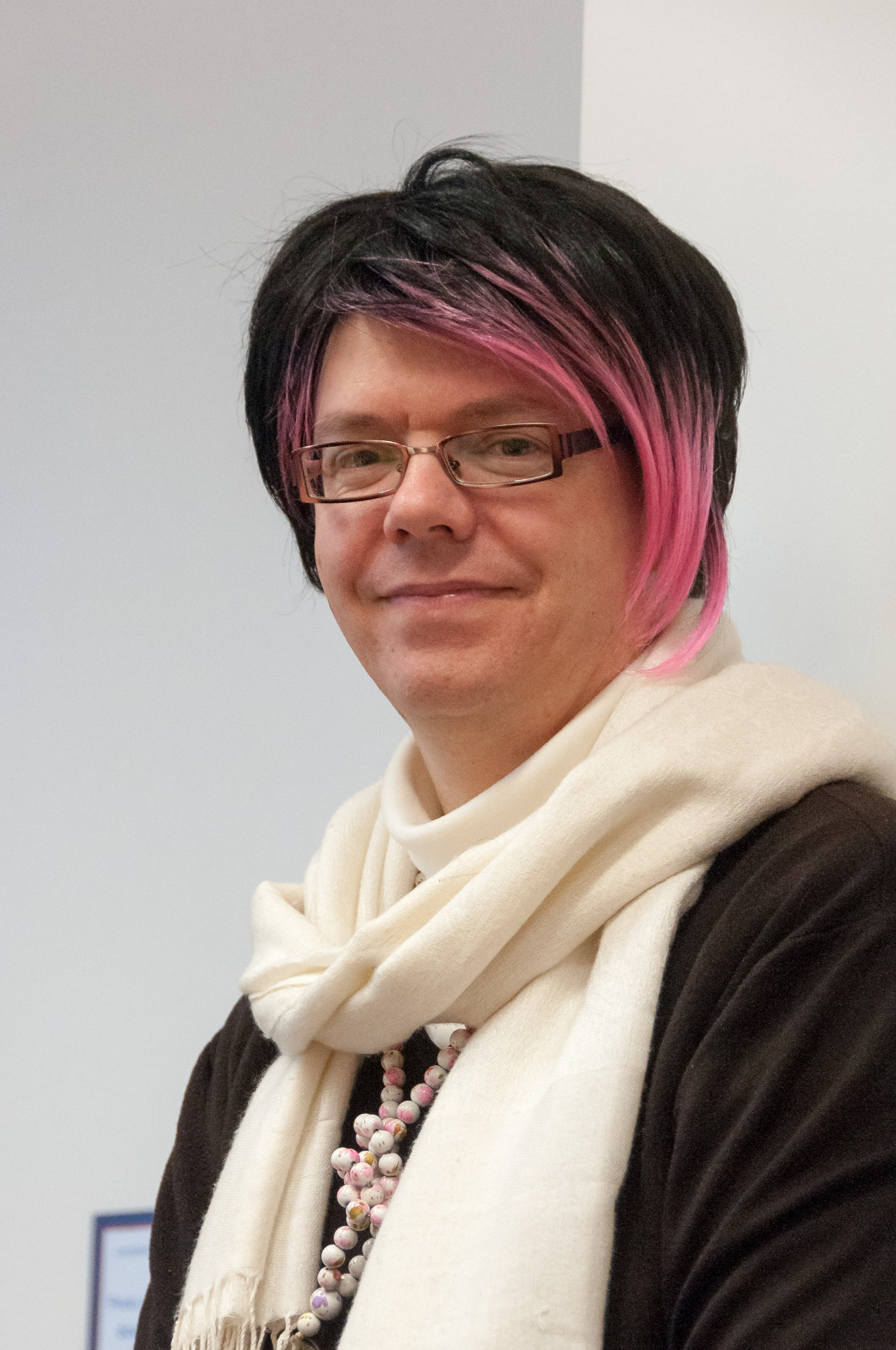 In this episode I am speaking with Professor Bee Scherer. Bee is a long-time practitioner of Buddhism and a global Buddhist lay teacher.
In this episode I am speaking with Professor Bee Scherer. Bee is a long-time practitioner of Buddhism and a global Buddhist lay teacher.
Bee has studied Indic and Tibetan philology, published on karma, Nāgārjuna and early Mind-only Buddhist schools. In recent years Bee has worked on transnational Tibetan Buddhism; radical, reform and socially engaged Buddhism in Asia; and on Buddhist perspectives on gender and sexuality.
You can hear Bee’s course The Essentials of Buddhist Philosophy at wisestudies.com
- Buddhism and the modern world
- Nāgārjuna the person and his philosophy
- Queer theory and queering Buddhism
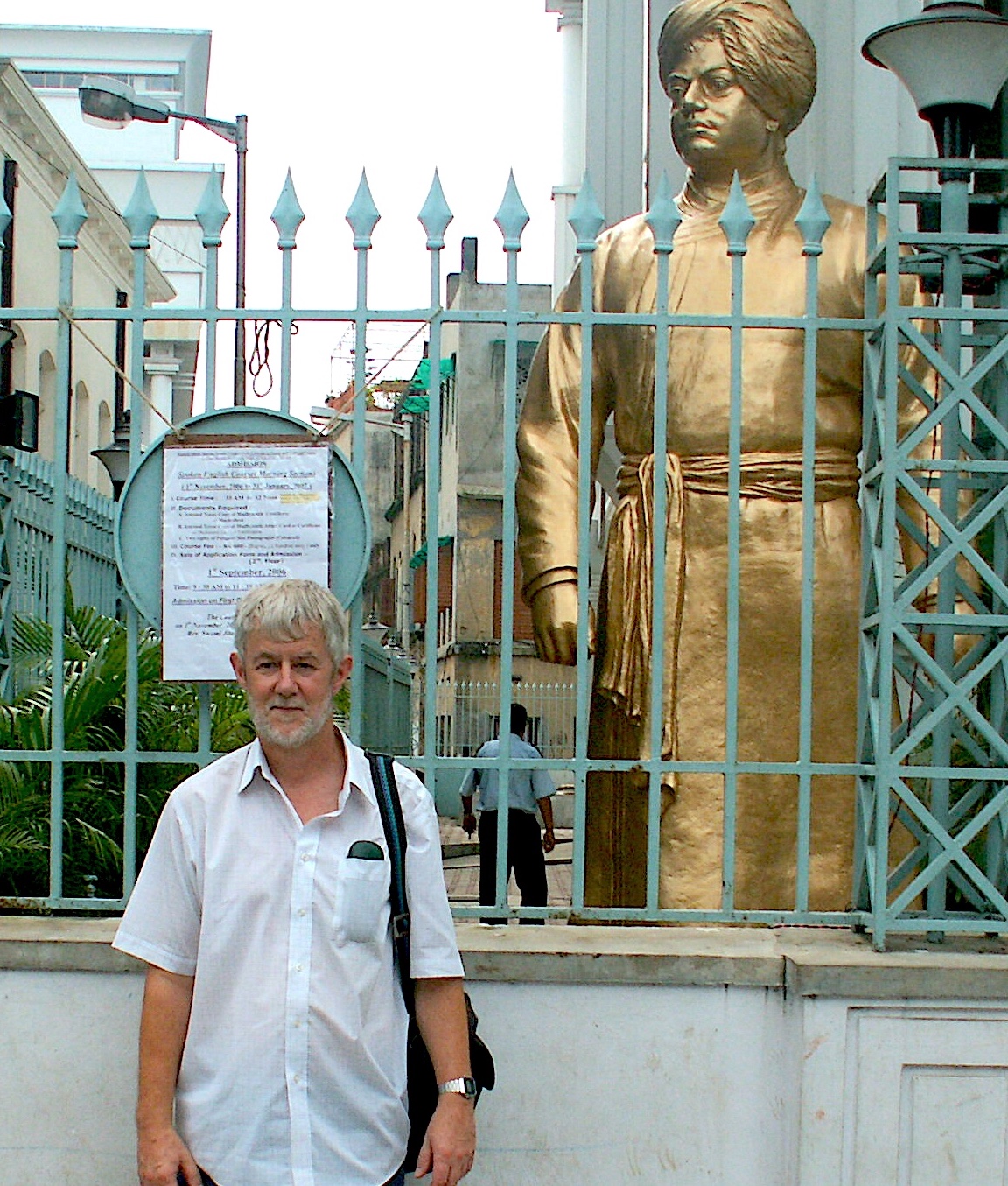
In this episode I speak with Gwilym Beckerlegge. Gwilym studied religions at the Universities of Oxford and Lancaster. He is the author of The Ramakrishna Mission: The Making of a Modern Hindu Movement (2000) and Swami Vivekananda’s Legacy of Service: A Study of the Ramakrishna Math and Mission (2006). You can find his course, Vivekananda and His Legacy at wisestudies.com
- Vivekananda, a man of his time
- Advaita Vedanta practices
- Ramakrishna
- Saint or Sage?
- God-realised?
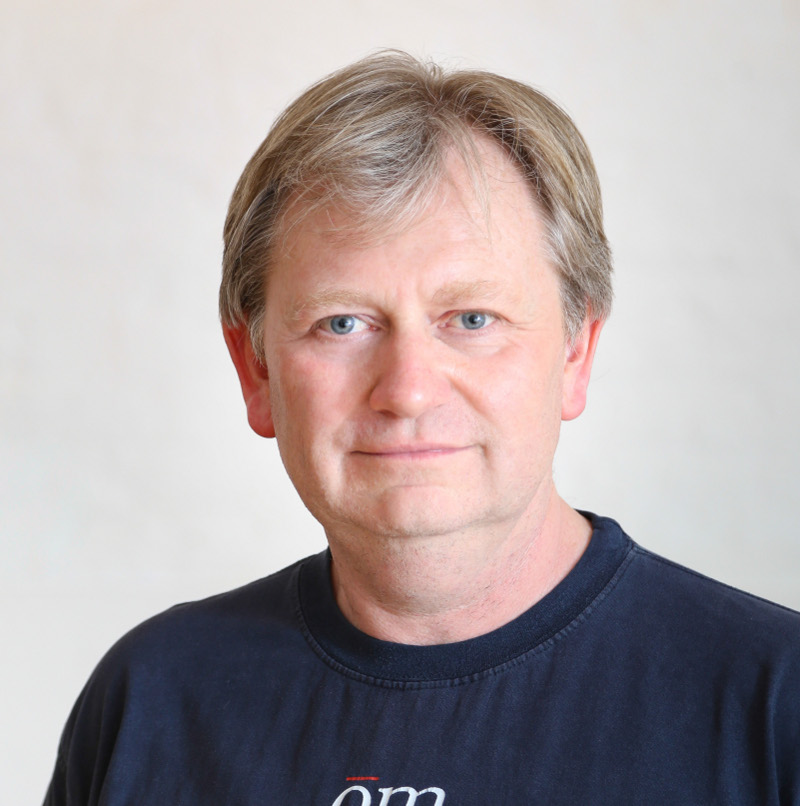
In this episode I am speaking with Graham Burns. Graham is a yoga teacher and lecturer. He received his masters and PhD at SOAS, the School of Oriental and African studies at London University where he is now a senior teaching fellow. We discuss:
- Introduction to the Upanishads
- Vedanta
- 3 schools of thought in Vedanta, Advaita, Dvaita, Vishishtadvaita
- Dualism vs non-dualism
- Comparing Vedanta with Sankya & Yoga
- Common themes in the Upanishads
Graham’s website is http://www.samanayoga.com/
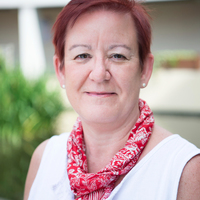
Angela Voss, PhD, SFHEA is Programme Director for the MA in Myth, Cosmology and the Sacred at Canterbury Christ Church University, UK.
In this podcast we discuss:
- Her interest in the Renaissance philosopher MarsilioFicino
- The relationship between art, religion and science
- Who were the neoplatonists?
- Neoplatonic ritual
- The neoplatonic goal
- The prominence of its practice
- The influence of neoplatonic ideas on contemporary esoteric, spiritual and scientific thought
Some of her publications can be found at https://canterbury.academia.edu/AngelaVoss Her latest publication is Re-enchanting the Academy, co-edited with Simon Wilson. You can hear her Wise Studies course at https://wisestudies.com/product/the-neoplatonic-imagination-with-angela-voss/

In this episode I am speaking with Reverend Dr. Nicholas Buxton. Nicholas is the Director of St Antony’s Priory, in Durham, and founder of ‘Just Meditation’ and the Newcastle Meditation Centre. He has a PhD in Buddhist philosophy from the University of Cambridge and is an experienced meditation teacher and retreat leader. Publications include The Wilderness Within: Meditation and Modern Life (Canterbury Press, 2014), and Tantalus and the Pelican: Exploring Monastic Spirituality Today (Continuum, 2009).
Topics discussed are:
- Christian contemplatives throughout history
- What is the focus of Christian contemplative practice compared to other meditative traditions?
- Who were the Desert Fathers?
- Is there a place for austerity in modern life?
- How Nicholas understands Jesus, the man, and the story of Christ?
- Is there a distinction between religious and spiritual?
- Do you see religious practice on a spectrum moving from an exoteric to a deeper esoteric dimension?
- Is your mission to promote the contemplative side of Christianity today?
- What is the difference between a meditation technique and prayer?
- What does the Christian tradition uniquely offer to spiritual practice?
- How do you structure life on a typical retreat at St Antony’s Priory?
Links to Nicholas’ projects
Facebook Page https://www.facebook.com/StAntonysPriory/
St. Antony’s Priory
Just meditation https://justmeditation.org/
His Wise Studies course is The Wisdom of the Desert
